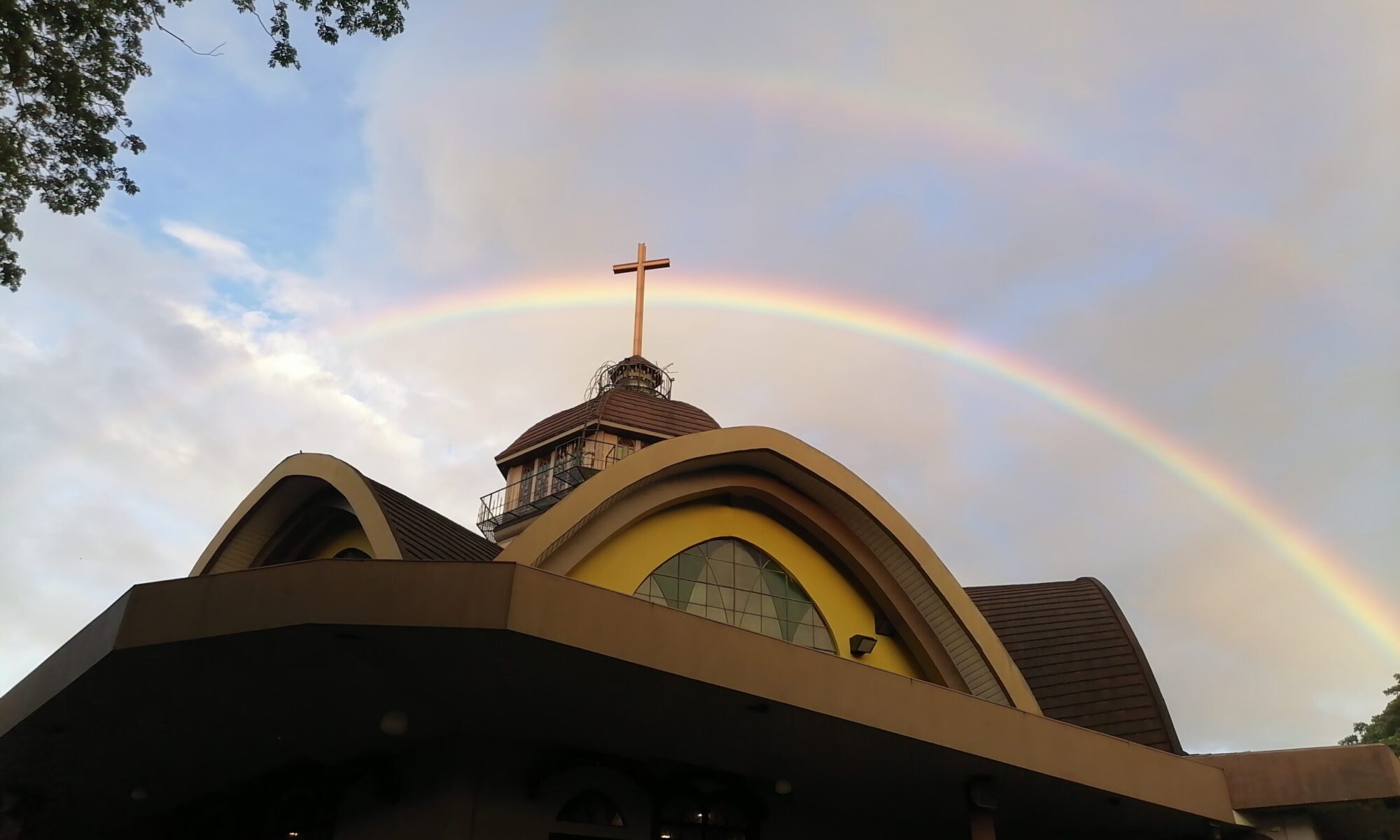A person is certain that in the Act of Faith, what he believes in is the truth and the good. Because the source of truth cannot deceive not be deceived. There is absolutely no element of doubt in the supernatural act of Faith. The certainty in Faith is supernatural. When there is doubt, faith is purely in the natural level which is the fate of all things natural.
2. Pope Francis’ first publicized speech is entitled ‘Love without dogma.’ Love (or Charity) is love of God and love of neighbor. It is impossible to love God without knowing God. And God is known through dogmas.
It is, also, impossible to love one’s neighbor unless we know our neighbors they way God wants us to know them; that they are children of God. And this is, also, a dogma. So it is impossible to love God and neighbor without knowing the dogmas revealed by God since these dogmas are in the supernatural level.
So, without dogmas the love Pope Francis was referring to was just the Freudian ‘Id’ described in Psychology. It is mere natural love; and even possibly sub-natural love. This love cannot save and cannot make anyone happy.
Let us look at the elements of Faith and how St. Luke helped Theophilus attain the perfection of Faith. Then let us see whether Pope Francis followed the same steps.
3. Faith has two great elements; first, is to HEAR the Word of God. And secondly, is to SEE the Word of God. This is according to St. Thomas of Aquinas in his commentary to today’s Gospel. Let us explain each briefly.
The first stage in the Act of Faith if to ‘hear’ the Word of God. Hearing comes through the ear and what is heard is implanted in the mind or intellect.
Hearing with the ear implies someone outside the hearer is speaking. So there is an outside stimulus that is heard and what is said is stored in the intellect. This is a part of the Act of Faith so Christ commanded the apostles to preach the Word of God so people can ‘hear’ the Word of God.
After hearing the Word of God we must ‘see’ the Word of God. Like the Shepherds and the Magi, after ‘hearing’ about the Word of God from prophets, they went to ‘see’ the Word of God.
Seeing the Word of God is, also, an act of intellect but with the cooperation of the free will and both are aided by Grace. Here is an added element, an enlightening of the intellect and free will by God’s grace. We cannot ‘see’ the Word of God without God’s grace. It is possible to ‘hear’ the Word of God as many are doing so but it does not necessarily follow that they shall ‘see’ the Word of God. Most Protestants hear and even memorize the Word of God but most often do not see the Word of God. Sadly, the same thing is happening among the Catholics which is tantamount to being Protestants.
St. Luke was seeing to it that Theophilus has certainly (‘that thou mightest know the certainty of those things, wherein thou hast been instructed’) made an Act of Faith and is, therefore, a Catholic. By the way, the name Theophilus means ‘lover of God,; and refers to all men who loves God after having made the mature Act of Faith.
4. Let us see the first act of ‘hearing’ the Word of God.’ Has Theophilus heard the Words of God?
St. Luke was worried because ‘many are going around declaring they are the right preacher of those things that Christians believe in.’ As today, so many are pretending to be evangelists pretending to preach the things that Catholics are supposed to believe in. But they are fakes because they were not the eyewitnesses and ministers of the Word first chosen by Christ. They have not personally heard the preaching of Christ and the apostles,… unlike St. Luke. It is impossible to make an act of Faith on words that did not come from Christ and the apostles.
Only those who were trained personally by Christ ” have the perfect knowledge and understanding of all things from the very first. They alone can do this.’ And St. Luke, being one of them, will write to Theophilus about all these things and in their proper order’ that ‘thou mightiest know the certainly of those things, wherein thou has been instructed.’
So, ‘hearing’ the Words of God would consists of these elements; first, that Theophilus was fully instructed. Note that the Gospel begins with Chapter 1 and halfway continues on Chapter 4. In between these two chapter is a Liturgical summary of all that must be done to be able to ‘see’ the Word of God.
Secondly, that the instruction consists of the proper order of what is to be done, like repentance must come before Faith and Faith must come before Charity. Thirdly, that the instruction come from one who is an eyewitness to the teachings of Christ, i.e. an apostles or a disciple. By having done the above one can surely say that he has ‘heard the Words of God.’ To do less is to be Protestant.
5. ‘Seeing’ the Word of God.
In the first part of the Gospel, Chapter 1, St. Luke wrote about ‘hearing’ the Word of God. In the second part of the Gospel, Chapter 4, he wrote about ‘seeing’ the Word of God.’
In this second part, St. Luke describes Christ speaking in the Synagogue. Christ is no longer in the Jewish Synagogue. So the Synagogue is now a type of the Catholic Church. Christ is teaching with wisdom and power within the Church. And those who have ‘heard’ the Word of God ‘see’ that the Spirit had possessed Him, thus recognizing Him as the Son of God.
With their minds, those who have ‘heard’ the Word of God had been enlightened by grace and can now ‘see’ the Word of God in the person of Jesus Christ as Son of God. And Christ confirms this by saying that the prophecy of Isaiah that they will ‘see the face of God’ had been fulfilled now in their midst.
6. St. Luke is not teaching Pope Francis.
It does not have to be St. Luke but one who can do exactly what St. Luke did; i.e. to teach him all the commandments of Christ and how to do it (which is the Apostolic Commission given to the Apostles and all their successors up to the end of time.) No one is telling him that he is listening to those fake preachers who claim they are teaching what Catholics are supposed to believe but which, in fact, teaching the opposite like the dis-solubility of the marriage bond. Nobody is teaching him that he must be complete in his teaching like that there can be no mercy without justice and purity of heart. Nobody is teaching him that his teachings are not in the right order like saying that love can come without Faith and Hope.
In fact, Pope Francis seldom quotes Jesus and His apostles. He is like those preachers during St. Luke’s time claiming to preach truths of Faith but who is just preaching their own man-made doctrines. He often quotes humans who were not witnesses to Christ’s teachings and activities like Cardinals Martini, Kasper, Teilhard, Kung and, mostly, himself. So Pope Francis goes against the teaching of St. Luke by repeating that Faith always has the element of doubt.
We seems to have a Pope who does not conform to St. Luke’s definition of one who have ‘heard’ the Words of God. It would follow he never ‘saw’ Christ. How can he lead a religion whose goal is to ‘see’ the face of God. Is there no St. Luke even among that vast follower of St. Ignatius who can save the Pope’s soul? Not to ‘hear’ and ‘see’ the Word of God is a mortal sin against Faith and Charity that leads surely to hell. And nobody even among his confrere is lifting his fingers to help?
I can only write posts like this, hoping someone read and see what’s wrong and do something about it; while continuing to wish that I am wrong all the while.
I should be quietly praying in my cell but all these news are pouring in. The old religion I have learned is nowhere to be found today. The new religion with ‘original sin’ as its god had taken over the whole world. And I see Catholic relatives, priest and bishop friends engulfed by this maelstrom. And there is no St. Luke to help them. But the Gospel tells us what to do if we do not have a St. Luke. Just follow the steps. Blessed John Newman, Pope Benedict reminded us did it that way. We can do it. So we have no valid reason not to ‘hear’ and ‘see’ the Word of God.
7. St. Luke’s worry is a world wide phenomenon today.
The Catholic Church was, once upon a time, filled with St. Luke. These were the Saints, who in their preaching, proved that what they are teaching came clearly from the teachings of the apostles and interpreted by the Fathers of the Church. Their teaching were complete and in order. A few that comes to mind are St. Augustine, St. John Chrysostom, St. Thomas Aquinas, Theophilact, St. Alphonsus Liquori, St. Robert Bellarmine. These saints almost verbatim quoted Christ, the Apostles and the Fathers in explaining Catholic Truths. Nothing of their explanations came from themselves.
Today, we do not have such teachers so our modern saints are those who went directly to the writings of the Apostles and the Fathers of the Church. And this is equivalent to learning from St. Luke. We mentioned John Newman. No one taught him. He simply went directly to the New Testament and the Fathers of the Church. Scriptures and Tradition were his St. Luke that gave him certainty at the things he was instructed to believe.


